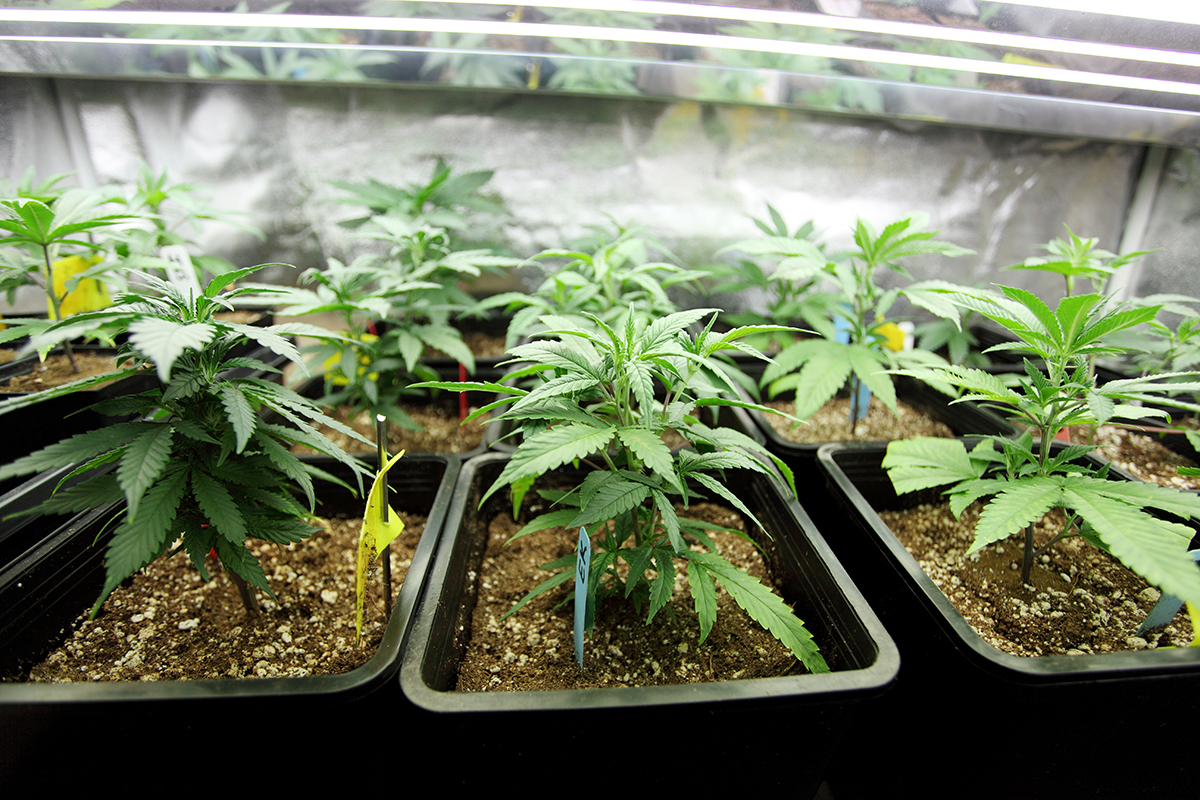The Pot Law Is About to Change. But How Much?

Marijuana crop growing indoors via Shutterstock
Seven months after voters passed a law legalizing marijuana in Massachusetts, lawmakers have now submitted the changes they would like to make to the law. So how much is the law approved by 1.8 million voters on the 2016 ballot about to change? That depends on how Senators and State Reps resolve their differences.
This week both the House and Senate passed bills seeking updates to the law. The House version, which has been panned by advocates for legal weed, would make sweeping changes to the law and more than double the tax customers will pay when pot shops open next year.
Meanwhile, the Senate version, which has the endorsement of the pot advocacy group that ran the Yes on 4 campaign, leaves most of the law intact. Changes in it are largely focused on somewhat less consequential issues, such as how edible marijuana products are packaged and marketed.
So now both sides will try to reach a compromise. A group of lawmakers will meet to hash out their differences, submit a proposal to lawmakers once more. And then, they hope, they will send a bill to the desk of Gov. Charlie Baker to sign. The goal all along has been to get something signed into law by the end of June, so the pressure is on.
The Senate version, passed last night, would leave the tax rate at the 10-12 percent range that passed in November. Lawmakers may have to set the tax rate somewhere in the middle.
The Senate’s bill would also leave intact a rule that towns and cities have to hold a referendum in order to ban or sharply limit the number of pot shops (the House bill wants to give all that power to town or city boards). How differences will be resolved on this issue is not clear.
After Senators passed their bill Thursday night, Sen. Patricia Jehlen, who is co-chair of the Marijuana Policy Committee, said she and her colleagues “are attempting to respect the will of the voters.”
“Second, we are attempting to reduce the illicit market by promoting a market that will allow consumers access to taxed and regulated products. Third, we are hoping to promote public health and protect consumers,” Jehlen tells the State House News Service. “We’re hoping to reduce youth consumption. We’re hoping to remedy the damage to people and communities who have been damaged by the drug war.”
Jim Borghesani, spokesman for Yes on 4, has advocated for leaving the law completely as is, but says he can support the more modest tweaks in the Senate bill over the one that cleared the House.”They stayed trued to their word that they weren’t going really intrude on the will of the voters and came forward with what we thought was reasonable,” he says.
Of course, it’s possible both sides won’t be able to agree. And that would be just fine with Borghesani. “If they can’t reach a compromise, it’s going to revert to what happened in November,” he tells the News Service. “And that’s what it should do.”
Stay tuned.


